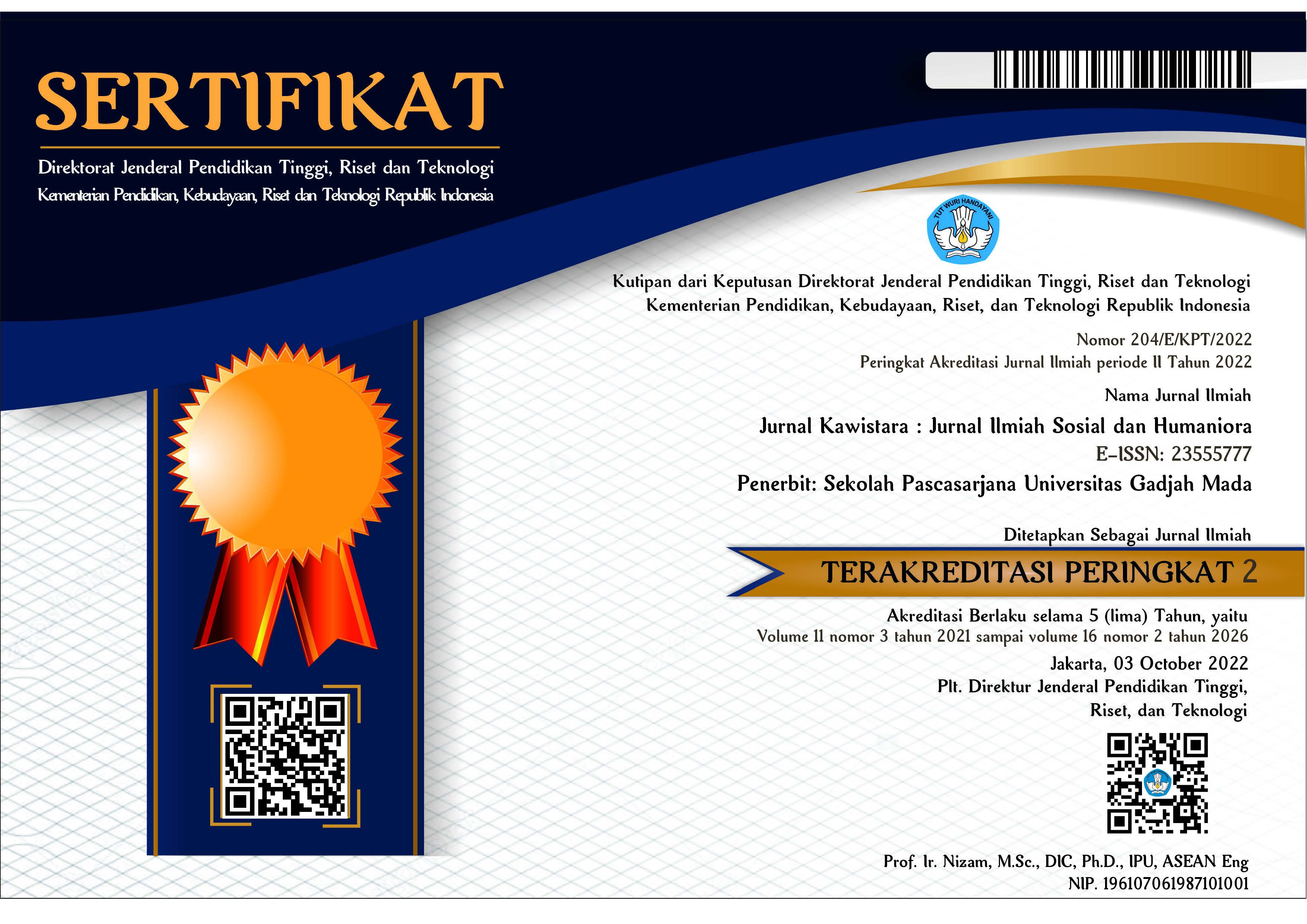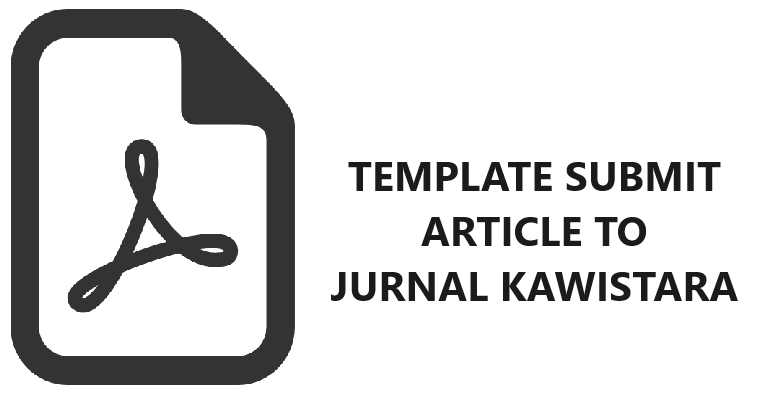KERJA LAYAK DORONG PERKEMBANGAN INDUSTRI PARIWISATA DI KEDONGANAN DAN JIMBARAN BALI
Bambang Suharto(1*), Janianton Damanik(2), Muhammad Baiquni(3), Chafied Fandeli(4)
(1) Jurusan Pariwisata Fakultas Sastra dan Budaya Universitas Negeri Gorontalo
(2) Pusat Studi Pariwisata Universitas Gadjah Mada
(3) Program Studi Kajian Pariwisata Sekolah Pascasarjana Universitas Gadjah Mada
(4) Sekolah Tinggi Teknik Lingkungan Yogyakarta
(*) Corresponding Author
Abstract
The decent work has become an obligatory in the tourism industry. This work has been able to ensure
properly the needs of workers, families, and their social life, productive and prosperous. This research
focuses on the study of generated effects of the decent work. Theoretical framework of the ILO decent
work (2009a) was used as the guidance framework to answer and find the actual implementation in
the tourism industry.The study used quantitative method as the basis of analysis towards the data
which were collected through questionnaires. The result indicated that the effect of the decent work on
the development of tourism industry reached 68%. This result was in good enough category scale. In
the scope of this value, the decent work showed the empirical reality gave further effect towards the
tourism forms based on prosperity and sustainability
Keywords
References
Anker, R. 2002. People’s Security Surveys:An Outline of Methodology and Concepts. International Labour Review. 141(4): 309—329.
Anker, R., I.Chernyshev, P.Egger, F.Mehran,dan J.Ritter. 2003. Decent Work With Statistical Indicators. International Labour Review. 142(2): 147—177.
Austin, T. 1991. A Chance to Be Decent:Northern Territory Half Caste Girls in Service in South Australia. Labour History. 60.(1): 51—65.
Chen, M., J.Vanek, dan M.Carr. 2004.Mainstreaming Informal Employment and Gender In Poverty Reduction. Commonwealth Secretariat. London.
Crouch, G.I., dan Ritchie, J.R. 1999. Tourism,Competitiveness and Societal Prosperity. Journal of Business Research. 44 (2): 137—152.
Cukier, J., dan Wall, G. 1995. Tourism Employment in Bali. Tourism Economics. 1(4):389—401.
Damanik, J. 2013. Pariwisata Indonesia: Antara Peluang dan Tantangan. Pustaka Pelajar. Yogyakarta.
Disnakertrans (Dinas Tenaga Kerja Transmigrasi dan Kependudukan Provinsi Bali). 2012. Data Informasi Ketenagakerjaan Provinsi Bali.
Dwyer, L. dan Forsyth, P. 1998. Estimating The Employment Impacts of Tourism on a Nation. Tourism Recreation Research. 23 (2).67—83
Hill, H. 2001. Small and Medium Enterprises in Indonesia: Old Policy Challenges for a New Administration. Asian Survey. 41(2): 248-270.
ILO. 1999. Decent Work: Report of the Director-General, International Labour Conference, 87th Session. ILO Publications.Geneva
ILO. 2002a. Decent Work and the Informal Economy, Report VI, International Labour Conference, 90th Session. ILO Publications. Geneva
ILO. 2009a. Asian Decent Work Decade 2006—2015, Implikasi Krisis Ekonomi Global Terhadap Lapangan Kerja Bidang Pariwisata: Studi Kasus Bagi Indonesia,Proyek Peluang Kerja Kaum Muda (JOY), Desember 2009. ILO Publications. Jakarta.
Kantor, P., Rani, U, dan Unni, J. 2006. Decent Work Deficits in Informal Economy:Case of Surat. Ec. and Pol. Weekly. 41(21): 2089—2097.
Marx, K. 2006. Kapital: Sebuah Kritik Ekonomi Politik, Buku I, II, III. Hasta Mitra Ultimus & Institute for Global Justice. Jakarta.
Mumi, Y.I. 2005. Gerakan Sosial Pekerja Hotel di Kabupaten Badung Pasca-2005: Perspektif Kajian Budaya, Dr.,Disertasi: UNUD.
Noe, R.A., Hollenbeck, J.R., Gerhart, B., dan Wright, P.M. 2000. Human Resource Management: Gaining a Competitive Advantage, Third Edition. McGraw-Hill Companies, Inc. USA.
Perez-Lopez, J.F. 1993. Cuba’s Thrust to Attract Foreign Investment: A Special Labor Regime for Joint Venture in International Tourism. The University of Miami Inter-American Law Review.24(2): 221—279.
Prajarani, M.I. 2011. SPPT Tel. Serikat Pekerja PT Tanjungen (Internet). Dialog Sosial dan Industrial Unionism Seminar. , (di akses 7 April 2012 jam 18:00 PM).
Rodgers, G. 2001. Decent Work as a Development Objective. Indian Journal of Labour Economics. 44(1): 15—26.
Standing, G. 2002. From People’s Security Surveys to a Decent Work Index.International Labour Review.141(4):441—454.
Sudemen, I.W. 2009. Peranan Sektor Pariwisata Terhadap Perekonomian Provinsi Bali. Jurnal Sarathi. 16(3): 394—421.Tardanico, R. 2003. Employment Transformations and Social Inequality: A Comparison of Costa Rica, Guatemala,and the Dominican Republic.Social and Economic Studies.
Tardanico, R. 2003. Employment Transformations and Social Inequality: A Comparison of Costa Rica,Guatemala,and the Dominican Republic.Social and Economic Studies. 52(3):119—141.
Thomas, J.M. 1980. The Impact of Corporate Tourism on Gullah Balcks: Notes on Issue of Employment. Phylon. 41 (1):1—11.
UNWTO. 2009. Sustainable Tourism Development in a Network of Cross Border Parks and Protected Areas in Benin, Burkina Fasom Gambia, Guinea, Guinea Bissau,Mali, Mauritania, Niger, Sinegal, Sierra Leone. Annual Report A Year of Recovery.
Williams, A.M. dan Shaw, G. 1988.Tourism: Candyfloss Industry or Job Generator? The Town Planning Review. 59(1): 81—103.
Article Metrics
Refbacks
- There are currently no refbacks.
Copyright (c) 2016 Bambang Suharto, Janianton Damanik, Muhammad Baiquni, Chafied Fandeli

This work is licensed under a Creative Commons Attribution-ShareAlike 4.0 International License.
Jurnal Kawistara is published by the Graduate School, Universitas Gadjah Mada.











